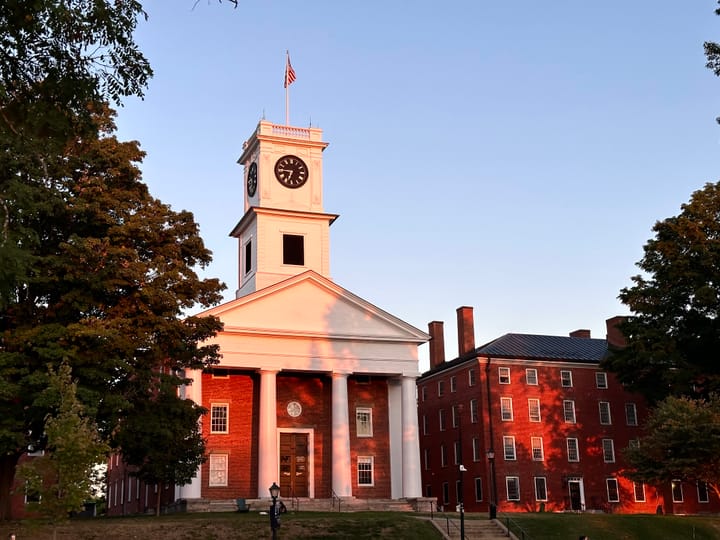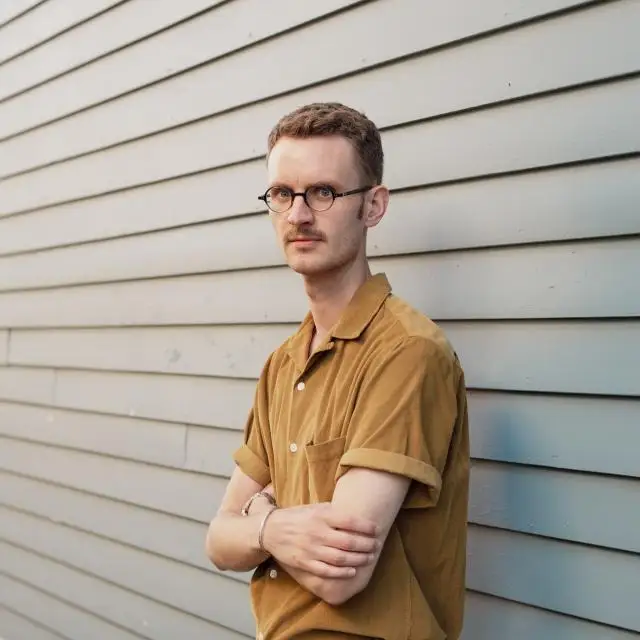Lipstadt Talk Prompts Students To Ponder Antisemitism, Jewish Community
Deborah E. Lipstadt, President Biden’s nominee for Special Envoy to Monitor and Combat Antisemitism, gave a talk on Feb. 10 titled “Antisemitism: The Ubiquitous Hatred.” She explained the ideology behind antisemitism, leading students to express concerns about antisemitism at the college.
On Feb. 10, Deborah E. Lipstadt, the Dorot professor of Modern Jewish History and Holocaust Studies at Emory University, gave a talk to the college community entitled “Antisemitism: The Ubiquitous Hatred.” Held over Zoom, the event was sponsored by the Office of the President. In her speech, Lipstadt explored the ideology behind antisemitism and its differences from other forms of prejudice. Students who attended the event lauded Lipstadt’s talk, but brought up deeper concerns about the lack of antisemitism education and Jewish community at the college.
Lipstadt is a renowned scholar and author on antisemitism and the Holocaust, particularly the movement of Holocaust denial. Her fight against Holocaust deniers was documented in the 2016 film “Denial,” where Rachel Weisz plays a younger Lipstadt. Nominated by President Joe Biden to be the Special Envoy to Monitor and Combat Antisemitism, Lipstadt spoke to the college community just two days after her confirmation hearing before the Senate in Washington. Her confirmation process has lasted months due to stalling by Republicans in Congress who oppose her appointment on the basis of remarks she made about the Jan. 6 Capitol riots.
“I have just come from Washington and the Senate Foreign Relations Committee hearings, so this is a much friendlier atmosphere,” Lipstadt joked at the beginning of her talk. She spoke to students about the origins of antisemitism in ancient societies and painted a picture of the most common tropes used in “Jew-hatred.”
Lipstadt also highlighted aspects of antisemitism’s ideology and function that make it unique from other forms of prejudice. These differences what fuel antisemitism’s violence and contribute to its relative obscurity, Lipstadt relayed.
Lipstadt explained that antisemitism can be harder for people to recognize than other forms of hatred because it rests on an illusion of “punching up” in society instead of solely “punching down.” Antisemitism posits Jews as “richer, … more controlling, … with smarts, but cunning smarts, malicious smarts,” she said. The traditional antisemitic “template of charges” is that Jews are “small in number, but able to punch above their weight” and manipulate others.
“The conspiracy theory element of it is exceptionally important,” she said. “Antisemitism is ubiquitous, coming as it does from all sides of the political spectrum. … It’s got such long roots that even if there are no Jews in a country and you say ‘It was the Jews’ fault,’ ... it makes sense to the person hearing it.”
Lipstadt discussed this punching-up illusion as paramount to antisemism’s violence as well as society’s ability to disregard it. She cited a recent article in The Atlantic by writer Yair Rosenberg, who wrote: “Thanks to centuries of material blaming the world’s ills on the world’s Jews, conspiracy theorists seeking a scapegoat for their sorrows inevitably discover that the invisible hand of their oppressor belongs to an invisible Jew.”
Lipstadt noted that in the United States, these “sorrows” can be rooted in prejudice themselves, entwining antisemitism with other forms of hatred. In his article, Rosenberg referenced Eric Ward, a Black activist and expert on white nationalism, who has written about how antisemitic conspiracies of Jewish control have held up racist ideologies based in the false conception that racial and ethnic minorities are inferior and unable to gain societal success without an extra helping hand from powerful Jews.
“Antisemitism has real impact beyond just hate crimes,” Ward writes. “It distorts our understanding of how the actual world works … It is actually utilizing bigotry toward the Jewish community in order to deconstruct democratic practices.”
Conspiracy theories about Jews have proven to be deadly in recent years. Lipstadt showed extensive clips of the 2017 demonstrations in Charlottesville, Va., where white nationalist groups rallied on the basis of a conspiracy that a Jewish agenda was seeking to displace white people in the U.S. — a counterprotester, Heather Heyer, was killed that day by a white supremacist car attack.
A similar conspiracy theory claiming that the Jewish refugee advocacy organization HIAS was sending “invaders” into the United States galvanized the terrorist who killed 11 people in a synagogue in Pittsburgh in 2018.
The charges often seem “ridiculous,” according to Lipstadt, leading people to further discount them as fringe activity. But she also pointed to antisemitism’s pervasiveness in more mainstream conspiracies about topics such as immigration and Covid, propagated by figures like Tucker Carlson of Fox News. These conspiracy theories may not outright reference Jews, but will use figures like Jewish philanthropist George Soros as a euphemism. The week before the Pittsburgh attack occurred, for example, a guest on Fox News claimed that a caravan of immigrants was being funded by the “Soros-occupied State Department” to infiltrate the United States.
“When it comes to the Jew, … you not only loathe them, but you fear them and what they can do to you,” Lipstadt stated. She cited the abnormal nature of antisemitism as a reason that people often misunderstand it, and fail to take it seriously.
Lipstadt also emphasized antisemitism’s cyclical nature. As writer April Rosenblum puts it, “Attacks come in waves; but each time things calm down and Jews are able to blend in or succeed in society again, it gives the appearance that antisemitism is ’over.’” This “appearance” that Rosenblum refers to then allows antisemitism to be built back up again without people’s noticing or concern.
“Jews don’t present as your typical victims of prejudice. They seem well-organized, they seem well-funded, they seem powerful,” Lipstadt said. “So when a Jew cries antisemitism, this can’t be legitimate, this must be made up. … To take it seriously even though Jews present differently, I think that’s very important.” She mentioned that its functioning often doesn’t fit neatly into the American Left’s understanding of prejudice and oppression.
Some Jewish students at the college emphasized this idea while reflecting on the talk. “[Antisemitism] gets brushed aside very quickly, both socially, and interpersonally,” said Lisa Zheutlin ’22. “It just doesn’t feel like something that is taken up with much gusto.”
Zheutlin also agreed with a point Lipstadt made about “bandwidth” that people “think that if they include antisemitism [in what they are opposed to] … that there’s only so much bandwidth, and that takes bandwidth away.”
“I disagree with that 100 percent, from a tactical and strategic point of view,” Lipstadt had stated.
Zheutlin explained, “When [antisemitism] does come up, sometimes it’s like, well, we need to prioritize our energies into more pressing concerns. But antisemitism plays a role in a lot of other systems of oppression, and that doesn’t really get talked about in any of my classes that are social justice driven either. So I think that probably makes it get taken less seriously.”
Diana Daniels ’22 expressed that Lipstadt’s talk is a “good reminder” for non-Jewish students “that antisemitism is still very prevalent. … It’s important for people to be reminded of that, if it’s not something that they’re experiencing in their daily lives.”
Zheutlin thinks that this reminder is necessary on Amherst’s campus. “If it’s not on your radar, plus you don’t have a lot of Jews around you in your life, which is very likely because there aren’t that many Jews at Amherst, it’s something that can easily be forgotten,” she said.
Zheutlin further noted that classes about antisemitism are offered sparsely, and that Lipstadt’s talk was the first she could remember “that’s been moderated in such a big format, about antisemitism” since she arrived at the college in 2017.
Dalya Ackerman ’23 agreed that there are too few opportunities to learn about antisemitism and Jewish history on campus. “Jewish history is not just the Holocaust,” she said, pointing out that history about non-Eastern European Jews is even less readily available here.
Ackerman thinks that this lack of understanding of antisemitism and Jewish history creates a sense of “apathy” on campus about antisemitism. “Another classic antisemitic trope is that Jews are self-victimizing,” she added, “It’s like going beyond apathy into an actual feeling of, this doesn’t matter.”
While they agreed that they were glad the President’s Office had brought Lipstadt in, both Ackerman and Zheutlin noted that based on their prior experiences, they didn’t expect that many non-Jewish students attended the talk. There is no data available to show the actual demographics of attendees. “In my head, I was imagining that a bunch of non-Jews were there listening and learning about antisemitism and going, ’Oh, I get it now. I’ll take it seriously,’” Ackerman said, “But I just generally assumed that most of the people there were Jews.”
After her talk, Lipstadt spoke with a smaller group of Jewish students, including Hillel E-Board members as well as other students recommended by professors. “A lot of us were like, ‘what do we do?’” Ackerman reported. “And she didn’t really have any answers. One thing I thought that was really beautiful that she said was not to let antisemitism become for us what it means to be Jewish, because it’s incredibly distracting … [and] to make sure to celebrate joy.”
Some students, however, reported feeling that it is difficult to find Jewish community on campus and “celebrate joy” as Lipstadt suggested. Ackerman pointed to the fact that “it took until last year for us to have an actual affinity group,” referring to the recently created Amitim. Prior to that, there was no Jewish affinity space outside of Hillel, which is a religious group and part of “an international organization that holds political beliefs that definitely push a lot of people out, rightfully so,” she said. Many students discussed feeling alienated at Amherst after living in places more surrounded by Jewish community.
“The Jewish faculty does not support the Jewish students on this campus,” Ackerman expressed. “I don’t feel like they are involved. … I feel like they have no intention of supporting Jewish students, which I feel as a member of our community is an obligation.”
In a Q&A after the talk, Lewis-Sebring Professor of Humanities and Latin American and Latino Culture Ilan Stavans also asked Lipstadt what can be done about antisemitism. Lipstadt said, “You would think after all these years, and being nominated for this position, I would have an easy answer. I don’t have one, … [but] it has to be taken seriously.”
A recording of Lipstadt’s talk is available to students on the Multimedia page of the college’s website until mid-March.





Comments ()